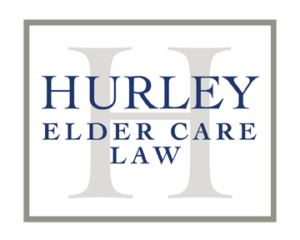Hurley Elder Care Law
Blog
Acid reflux or GERD (gastroesophageal reflux disease) is the rise of stomach acid into the esophagus, which causes heartburn. Treating acid reflux with PPIs or H2 blockers is a common practice, with approximately 15 million Americans taking PPIs. In the past few months two studies have found that PPIs (proton pump inhibitors) may be linked…
Read MoreMost of our married clients come to our office with existing estate planning documents. They have Wills, Trusts, Durable Powers of Attorney and Advance Directives for Health Care that name the spouse as a beneficiary or responsible party. When a couple is dealing with the unfortunate situation of having one spouse in the nursing home…
Read MoreThe United States Department of Veterans Affairs (VA) reports that “posttraumatic stress symptoms can emerge or re-emerge late in life,” as age-related factors affect preexisting mental health issues or lead to the development of new ones. Up to 15% of older adults may experience and struggle with post-traumatic stress disorder (PTSD) symptoms, and reasons for…
Read MoreFive years ago, the U.S. Preventive Services Task Force recommended against routine blood tests to measure your level of prostate-specific antigens – the PSA test. The task force now recommends men 55 to 69 should talk with their doctor about whether to have the test. Following are highlights from an interview with Dr. Muhammad Nasir, Senior…
Read MoreIt starts early! Findings suggest that females at all ages are healthier than males. It is vital to recognize that many of the major health risks that boys and men face today can be prevented and treated with early diagnosis. This is a man’s issue, but women also need to take an active role. We…
Read MoreA nursing home resident can own a home and still qualify for Medicaid. The home, however, can be subject to Medicaid estate recovery after the resident dies. When Medicaid helps pay for nursing home care, the state must attempt to recoup from the beneficiary’s estate whatever amount was paid on the resident’s behalf; this is…
Read MoreIt starts early! Findings suggest that females at all ages are healthier than males. It is vital to recognize that many of the major health risks that boys and men face today can be prevented and treated with early diagnosis. This is a man’s issue, but women also need to take an active role. We…
Read MoreWhat do Dick Van Dyke, legendary comic author Stan Lee, and Mel Brooks have in common? They are all thriving well into their 90s! HBO Documentary Films is taking a look at aging with their latest film, “If You’re Not in the Obit, Eat Breakfast.” The title was inspired by comedy legend Carl Reiner’s philosophy…
Read MoreHere’s a great question that we received just the other day: My wife has moved into a nursing home. In addition to our home, we own two rental properties. Our income is good, but it is not enough to pay for the nursing home. We are receiving mixed information about whether or not she can…
Read MoreA superbug is defined as a pathogenic microorganism, especially a bacterium, that has developed resistance to the medications normally used against it. Hospitals and nursing homes are able to keep lethal superbug outbreaks a secret, due to vague rules that give healthcare providers great leeway in deciding when or whether to report unusual clusters of…
Read MoreSubscribe to our blog and monthly newsletter.












